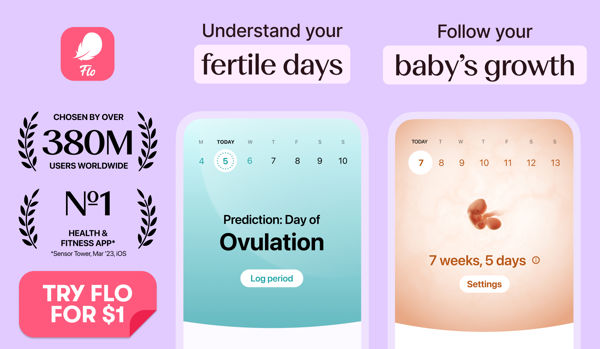My favorite reminder that I give all of my clients is that we do not give birth by numbers. A due date is a guess, which is why certain birthing programs call it a guess date. First-timers will usually carry to 41+5 rather than right on the dot at 40 weeks. What is even more wild is that only 5% of pregnant individuals will give birth on their actual due date.
Calculating Your Due Date
The due date is more of a guess because it can be determined in many ways, but in some situations, there is not enough reliable information to truly know someone’s actual due date. The first way that most care providers will calculate a due date, and most apps will do it as well, is by determining the first day of your last known period and then adding 280 days to calculate your due date.
Another way is if someone knows the exact date of conception. This is rarer but can occur when someone uses fertility medication to conceive. Adding 266 days or 38 weeks from conception will get you to your estimated due date.
The last option for accurate ways of knowing someone’s due date is with an early ultrasound. This ultrasound must take place between 8-12 weeks for it to be as correct as possible. I often recommend an early dating ultrasound when someone does not know their last menstrual period date or date of conception or if someone’s cycles vary significantly in length.
Going Over Your Due Date
Because of these different ways of measuring and the fact that everybody is different, going over one’s due date is not typically surprising or concerning. The amount of time that one can legally go over their due date and have an out-of-hospital birth varies significantly from state to state, but typically, it is between 42-43 weeks gestation. Hospitals are more likely to push for induction before 41 weeks and, in many cases, as early as 39 weeks gestation. As with anything in pregnancy, you are the one who is in charge of your body. If a care provider wishes to induce you, you can simply say “no” or choose not to show up to your scheduled induction. Keep in mind that ideally, you have hired a care provider that you trust to make good calls about your pregnancy and help you to have an informed decision-making conversation before choosing induction or waiting.
Certain things can cause a longer gestation time. These include:
- This being your first pregnancy
- A history of gestating longer in previous pregnancies
- Being pregnant with a male fetus
- An incorrectly calculated due date
What Are the Risks?
As with many things in pregnancy, there are some risks associated with pregnancies that go longer in gestation. A pregnancy that lasts between 41-42 weeks gestation is called a “late-term” pregnancy, and anything past 42 weeks is considered “post-term.” Risks associated with late-term pregnancies are having a baby that is larger in size or fetal macrosomia, postmaturity syndrome, low amniotic fluid levels, infection, severe vaginal tears, and heavier postpartum bleeding. Risks associated with post-term pregnancies include fetal macrosomia, post-maturity syndrome, meconium aspiration syndrome, low amniotic fluid levels, assisted vaginal delivery, cesarean delivery, heavier postpartum bleeding, and in some cases, stillbirth.
What Can You Do?
Some ways to ensure that your baby and placenta are okay with you still being pregnant include Biophysical Profile (BPP) testing, another ultrasound that looks at fetal heart rate, breathing, movement, muscle tone, and amniotic fluid levels. Getting a BPP can give you five more days of being relatively “safe” to continue in pregnancy. Another test commonly done is a Non-Stress Test (NST). This test measures the fetal heart rate for twenty minutes to see how reactive or non-reactive the fetus is during that time. Typically, care providers will request more of these tests the longer you go over your due date, usually starting at around 41 weeks of gestation.
If you are choosing induction, there are many options depending on whether or not you plan to give birth in or out of the hospital. It is my best recommendation to do your due diligence in researching all of the options your care provider lays out for you so that you can make the best possible choice for you and your baby. Remember to weigh out the risks of induction with the risks of going over your due date. This is a decision that only you can make and one that should be made with all of the information possible. You are the professional of your body and your baby, and your care provider is the professional of birth in general. Knowing what option feels best is up to you; a good provider will always trust your gut intuition.







